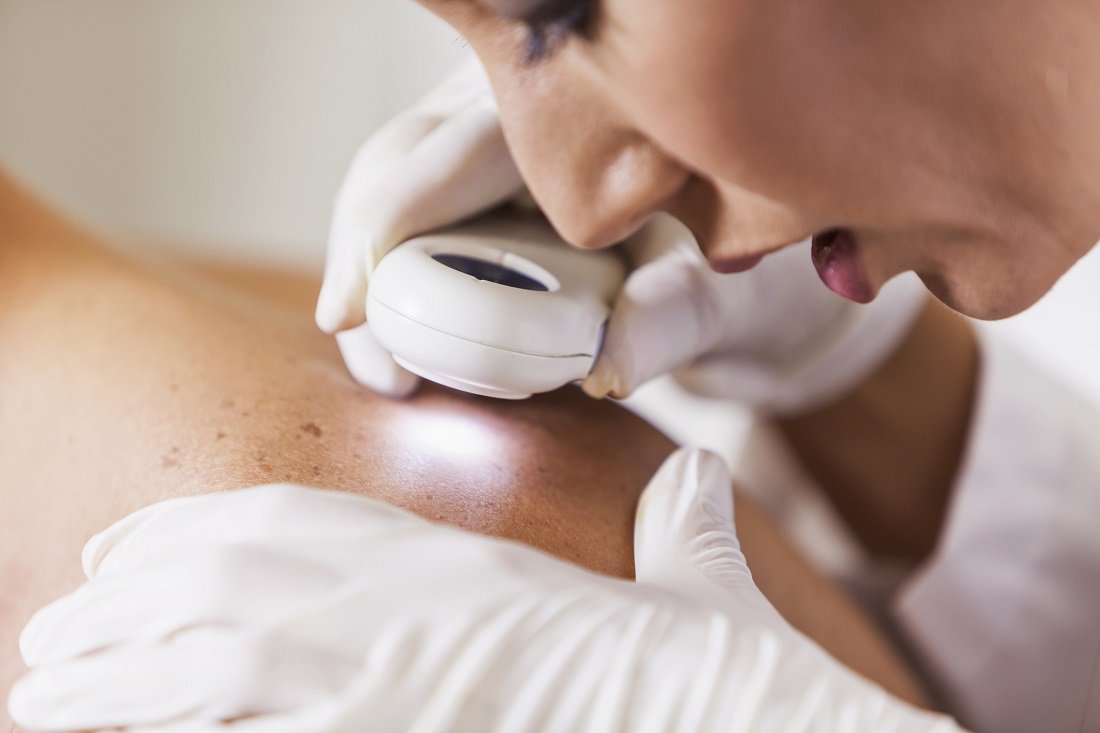Get your Skin Check!
Getting your annual skin check with a dermatologist is one of the best ways to catch skin cancers early or even before they form. At Dermatology Arts, we provide extremely thorough skin checks. We check you head to toe, and we will use a dermatoscope to check your spots, allowing us to catch subtle changes that might not be visible to the naked eye. Furthermore, we are passionate about patient education and we always take the time to explain what we are seeing and teach you how to protect your skin. If you haven’t had your skin check yet this year, click here to book your appointment with us!
Curious about what happens at a skin check?
We start your skin check by taking your history. We will ask whether you have any family or personal history of skin cancer. Certain skin cancers like melanoma have a genetic component, and having a first-degree relative (mom, dad, or sibling) with melanoma increases your risk of melanoma. Any personal history of skin cancer is also extremely important. We want to help you look out for any recurrences and protect you from further skin cancers, so please bring any past medical records you have of previous skin cancers, biopsies, or surgeries.
Next, we get into your sunscreen habits and sun exposure history. We will ask about sun burns, tanning bed use, where you’ve lived, and how much time you spend outdoors. Last but not least, we are always interested in learning about any spots that have been bothering you, changing quickly over the course of weeks to months, or just look different from all of your other spots.
After completing your history, we have you change into a gown so that your provider can examine all your spots. We understand that having your skin examined can be a new experience for many, but we are always very mindful of preserving your modesty and privacy. Our medical assistants serve as a chaperone during the visit, and if you would prefer to only have a female or male medical assistant, feel free to let the front desk or your medical assistant know, and we would be happy to accommodate you.
Once the examination is complete, if there are any spots that are concerning, we will carefully talk you through all the treatment options. Certain spots may need to be treated with liquid nitrogen, biopsied, or just monitored. But no matter what, rest assured that our providers will listen to your needs, explain each option thoroughly, and help you choose the best course of action for you.

